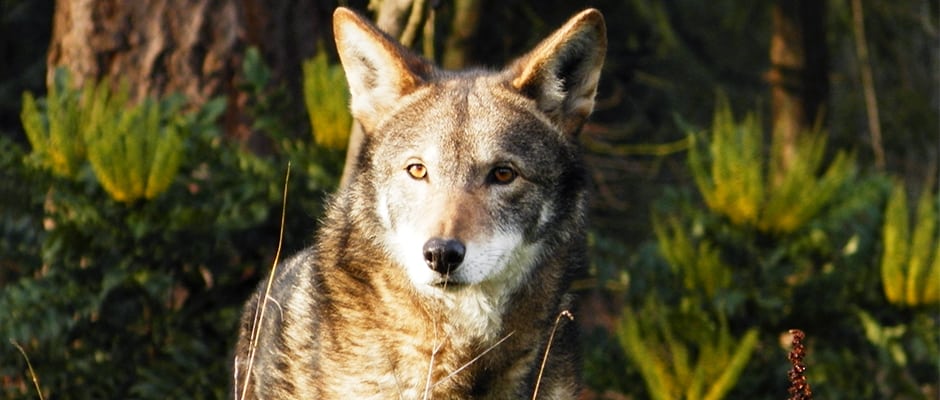Share this article
Three must-see panel discussions
Three panel discussions will be featured among the more than 500 educational opportunities at The Wildlife Society 23rd Annual Conference in Raleigh, North Carolina, this October.
We recently revealed the slate of workshops that will be available, but if you missed those articles you can view the complete list at our conference website.
Over the next two weeks, we’ll be unveiling our full lineup of symposia opportunities available to you as a conference attendee. Our education and training program will continue the theme of our jointly-hosted workshop at the recent North American Wildlife and Natural Resources Conference—reconnecting wildlife science and management—while spotlighting how effective partnerships are making a big impact on wildlife management and conservation.
Registration opens on May 15, but you can check out this year’s registration options and hotel information at our conference website.
Panel Discussions
Interactions of Human-Caused Mortality, Genetic Introgression, and Management among Wild Red Wolves in NC
Organizers: Krishna Pacifici, North Carolina State University, Raleigh, NC; Scott Mills, North Carolina State University, Raleigh, NC; Roland Kays, North Carolina Museum of Natural Sciences and North Carolina State University, Raleigh, NC
Supported by: Urban Wildlife Working Group
After being nearly driven to extinction by the combination of human persecution, human-caused habitat change, and subsequent hybridization with coyotes, red wolves (Canis rufus) were rescued from extinction by the establishment of a captive breeding program in 1973. In 1987, red wolves were first released into a coyote-free (Canis latrans) area in northeastern North Carolina. But by the early 1990s coyotes began colonizing the area, and pairings between red wolves and coyotes were first detected in 1993. In 2000, a program to contain hybridization and introgression by sterilizing coyotes and removing hybrids began. Genetic assignment tests were used to determine which canids were red wolves, hybrids and coyotes. But despite these management efforts, the number of red wolves in the reintroduced population has remained around 100. Given these additional sources of uncertainty surrounding hybridization and the potential increase in introgression along with the existing challenges for survival of red wolves as individuals and a species, the success of the recovery program remains unclear. This expert panel will investigate, address and discuss two primary interrelated questions at the source of the uncertainty: (a) how does human-caused mortality affect reproductive barriers among red wolves and coyotes; and (b) at what biological point should genetic introgression prompt the delisting of red wolves? The panel will also consider broader implications of widespread hybridization for management of wildlife under the Endangered Species Act.
Handling Microaggressions in the Workplace
Organizers: Misty L. Sumner, Texas Parks and Wildlife, Van Horn, TX; Jessica A. Homyack, Weyerhaeuser, Vanceboro, NC
Supported by: Native Peoples Wildlife Management Working Group; Ethnic and Gender Diversity Working Group
This session will feature an interactive and focused discussion on handling microaggressions in the workplace that will improve workplace climate and feelings of inclusiveness. The panel will include wildlife professionals across career stages and backgrounds and a local scholar of gender studies to provide insight and knowledge into microaggressions and implicit bias.
Climate Change and Cross-Seasonal Research Priorities for Migratory Birds
Organizers: Brad Griffith, U.S. Geological Survey (USGS), Alaska Cooperative Fish and Wildlife Research Unit, University of Alaska Fairbanks, Fairbanks, AK; Jennifer K. Roach, Institute of Arctic Biology, University of Alaska Fairbanks, Fairbanks, AK; Madeleine A. Rubenstein, USGS National Climate Change & Wildlife Science Center, Reston, VA
Supported by: USGS Alaska Climate Science Center, USGS Alaska Cooperative Fish and Wildlife Research Unit
The effects of climate change and other factors on waterfowl demography variy among seasonal ranges, and population trends result from cumulative effects throughout their annual ranges. It is unlikely that the direction or strength of climate and other effects are consistent among ranges. As a result, it is extremely difficult to unravel the most important effects on population size when potentially contrasting positive and negative influences of climate occur within a year at widely separated locations. A large-scale research framework is needed to deal with this complexity and increase the relevance, efficiency and effectiveness of management-related research. To develop a focused and integrated multi-regional and national research program, this panel of state, federal and NGO managers and researchers seeks to prioritize climate change information needs and enhance communication between researchers and managers from distant seasonal ranges. The panel will present results from 1) a questionnaire survey of state, federal and NGO managers and researchers that ranked research topics based on the direction and magnitude of expected climate effects on waterfowl demography and, thus, population sizes, and 2) four workshops that identified management-relevant knowledge gaps regarding climate effects on all migratory birds. These presentations will promote a broader discussion about 1) ways to enhance cross-seasonal communication, 2) ways to incorporate information about climate effects into ongoing efforts to develop annual life cycle models, and 3) the commonalities and differences between results from the waterfowl survey-based (specific) and all migratory bird-based (general) approaches and the situations when each approach may be most appropriate.
Header Image: One of this year's Annual Conference panel discussions features the rescue and reintroduction of red wolves. ©Christine Majul








